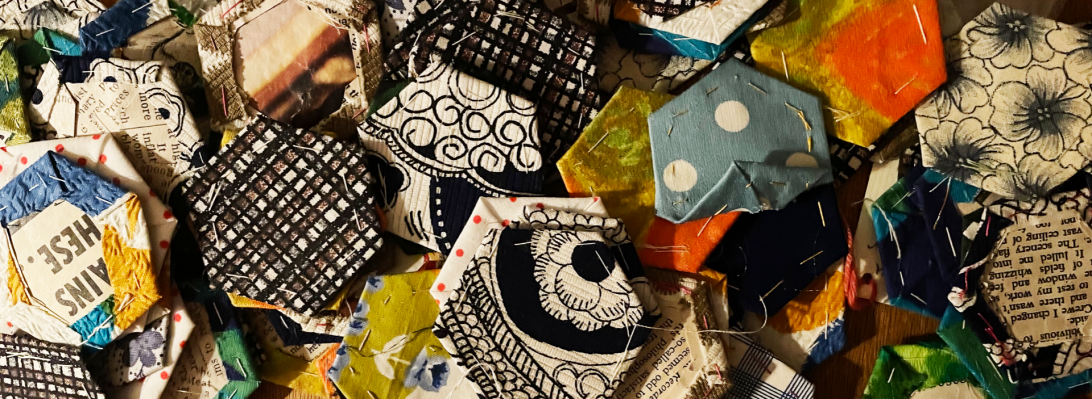I’m delighted to share that the chapter The Domestic Academic Quilt: Collaborative creation as academic research in the global pandemic, which I wrote as a personal essay reflecting on the experience of running this project will be published in the Demeter Press publication Give & Take: Motherhood and Creative Practice this month (March 2024).

About the book:
Give and Take: Motherhood and Creative Practice. Eds. Tara Carpenter Estrada, Katie Palfreyman, and Katie Palfreyman
34 chapters, 358 pages, 90plus art/photography
https://demeterpress.org/…/give-and-take-motherhood…/
Price: $44.95 Cdn; ISBN: 978-1-77258-488-2; Publication Date: March 18 2024
Give and Take offers personal narratives from artist mothers at all stages in their careers who work in multidisciplinary mediums about the “ give and take” of motherhood in the art world. The collection of essays addresses relatable topics and essential vocabulary as tools to describe phenomenon all artist mothers have experienced. Readers will easily be able to see themselves in the words of the authors.”
– Eleanor Lim-Midyett, Assistant Professor, Kansas City Art Institute
Every mother artist and their partner should read Give and Take: Motherhood and Creative Practice. Seldom is there a book that thoughtfully and thoroughly exposes the plight of mother creatives and offers not only a range of perspectives but also a breadth of ideas aimed to create threads of connection and uplift mother creatives across all disciplines and generations. As a mother artist with young children my time is consumed with my children’s immediate needs and carving out time for myself to be quiet and create is a challenge. It can also feel isolating, which can lead to creative stagnation which can then lead to parenting from a place of frustration. Reading Give and Take reminded me that I am not alone in my struggles, my creative desires are not insignificant, my frustrations are valid, my successes (no matter how little or seemingly insignificant) are to be celebrated, and that creating like parenting is a marathon not a sprint.
– Helen Hansen French, dance artist, educator, mother.
Give and Take: Mothering and Creative Practice explores the diverse ways contemporary artists navigate the unique tensions of motherhood in all its varied stages. Becoming a mother is a life-changing event that can give mothers greater perspective, drive, and inspiration for making art. But motherhood also takes time and energy from pursuing creative work. This fundamental challenge, this give and take, is explored through this book as it forefronts the art and lives of dancers, playwrights, musicians, visual artists, and creative writers. The book contains thirty-three first person narratives from practicing artists along with written analyses that place these artists’ essays within the broader context of arts writing and scholarship about motherhood. The concluding section of the book includes overarching thoughts about how artist mothers can move forward despite structural inequality and cultural bias and includes a resource guide for practical support.







